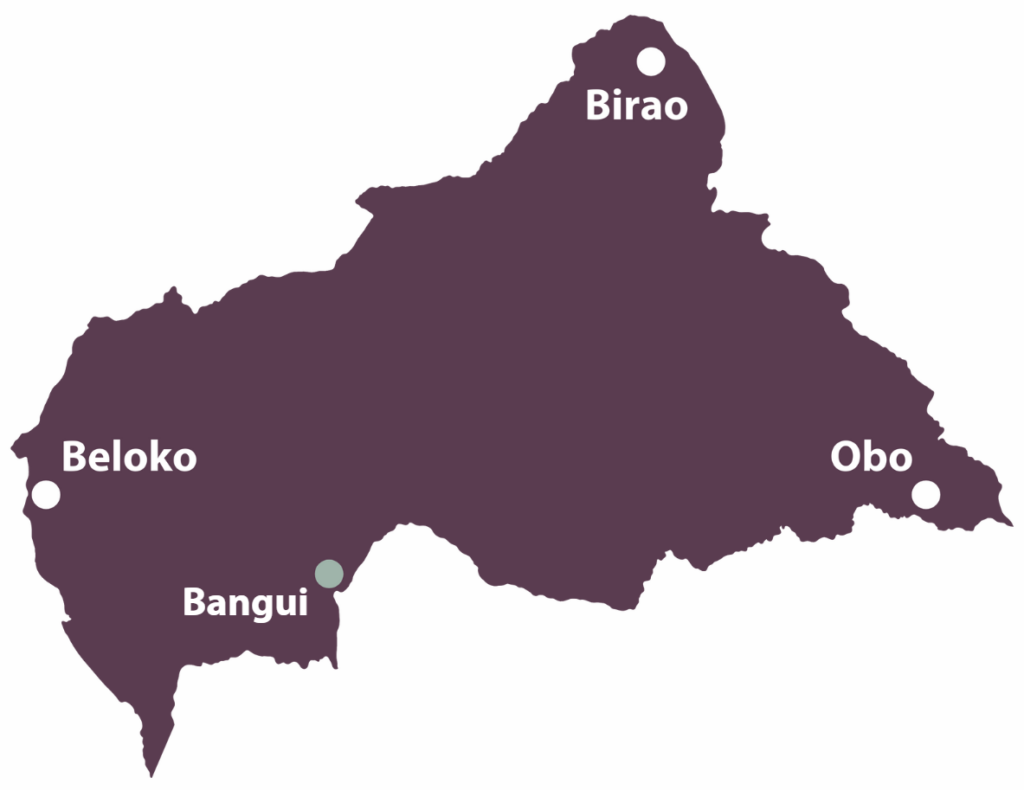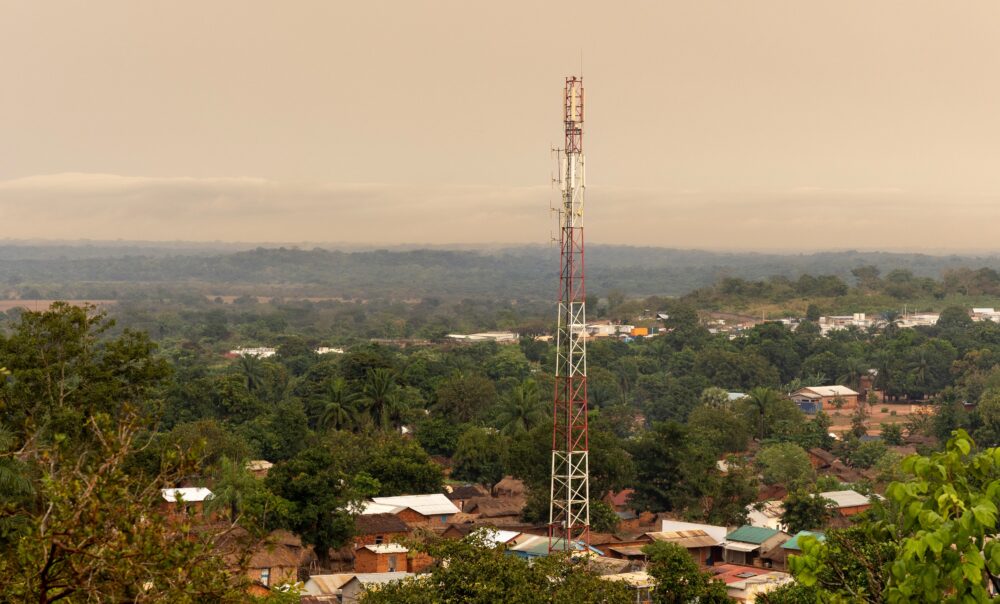Can the impact of a news radio station on a highly vulnerable population in a crisis-affected country be measured? The installation of new FM transmitters for Radio Ndeke Luka in Beloko, Birao, and Obo in the Central African Republic offered an opportunity to carry out a field study measuring the impact of our radio station before and after its introduction in these remote regions of the country. The results of this study reveal a tangible impact and a shift in listeners’ perceptions, particularly regarding misinformation.
Context
The Central African Republic, marked by a weak central state, widespread poverty, and recurring intercommunal conflicts, is particularly vulnerable to misinformation. Radio Ndeke Luka, a project of Fondation Hirondelle in CAR, plays a crucial role by broadcasting reliable news 24/7 in both French and Sango across the country.

Thanks to funding from the European Union, new FM transmitters for RNL were installed between December 2021 and April 2022 in remote areas of the Central African Republic, specifically in Beloko, Birao, and Obo. This provided an opportunity to assess the radio’s impact on local populations before and after the installation.
Methodology
Investigators from the local network of IMMAR Research & Consultancy followed a protocol developed by Dr. Jeff Conroy Krutz, Associate Professor in the Department of Political Science at Michigan State University. This protocol ensured a random selection of adult participants and gender balance. In total, over 1,700 people were interviewed before the transmitters were installed, and more than 1,800 afterwards, within the same communities across the three localities.
Measured Impacts
- Increase in Audience: RNL became the most listened-to radio station in the targeted areas within months of the new transmitters going live.
- Relevance and Impartiality: 52% of listeners considered RNL’s programs essential to their daily lives. Trust and impartiality scores also improved between the pre- and post-launch periods. Trust in RNL far exceeded that of other locally accessible radio stations.
- Combating Misinformation: Residents of the three areas reported significantly greater confidence in their ability to distinguish fact from fiction after the installation of the transmitters, which facilitated access to RNL programs.
Video presenting the project (English subtitles available):
For results more specific to the Beloko region, consult the specific study report here. Several concrete effects were measured, including changes in attitudes toward the media environment, democratic principles, political engagement, and misinformation.
The full study report is available here:
For more information: sacha.meuter@hirondelle.org

